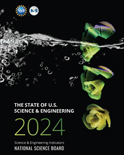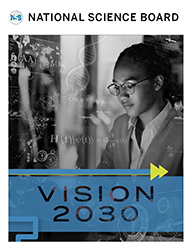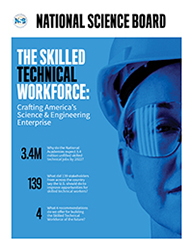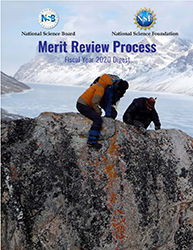Committee on Education and Human Resources (EHR)
Charge
The Committee on Education and Human Resources (EHR) is charged with two principal roles. It provides guidance and advice on major policy issues related to the NSF Education and Training portfolio, and reviews proposals representing a significant expenditure of agency resources. It also provides advice on major national policy issues in education and human resource development. The Committee makes informal recommendations, as appropriate, for the Board's full consideration and action.
I. The Committee engages in review of long-range planning of NSF education programs and initiatives, monitoring their development and integration with research. This is reflected in the Committee's deliberations on:
-
the demand for and supply of scientists, engineers, and technicians
for the Nation's workforce, especially the access to participation in
science and engineering by diverse populations-minorities, women, persons
with disabilities and those disadvantaged and underserved; and
- the preparation of the American citizenry for effective understanding and use of science, mathematics, engineering, and technology.
II. Through comprehensive review and discussion, the Committee may submit informal recommendations for full consideration and action by the Board on:
-
proposed awards for NSB approval as required by law and as set forth
in the NSB delegation of authority;
-
programs and major new projects/facilities, including management
of awards and structures;
-
task force reports assigned to its purview; and
- priorities and balance of support among NSF programs devoted to preschool, K-12, undergraduate, graduate and postdoctoral education; to faculty development; and to informal science learning, appreciation and understanding by the general public.
III. The EHR Committee supports the Board's national policy role in elementary, secondary, higher and informal education, lifelong learning, and human resource development in science, mathematics, engineering and technology. This support includes:
-
recommending specific actions to the Board to improve science education
in coordination with other agencies and organizations (private and nonprofit);
and
- supervising, through its Subcommittee on Science & Engineering Indicators, preparation, review and recommendation to the Board of publication of the biennial Science and Engineering Indicators report.
Committee Members
| Chairman: | Dr. John T. Bruer |
| Members: |
Dr. Dan E. Arvizu Dr. Camilla P. Benbow Dr. G. Wayne Clough Dr. José-Marie Griffiths Dr. Louis J. Lanzerotti Dr. Alan I. Leshner Dr. Douglas D. Randall Dr. Thomas N. Taylor Dr. Richard F. Thompson |
| Consultants: |
Dr. Barry C. Barish Dr. Elizabeth Hoffman |
| Executive Secretary: | Ms. Kathryn Sullivan |
|
|
|




